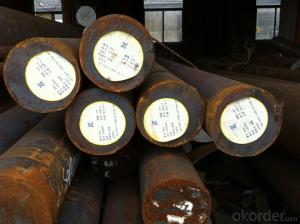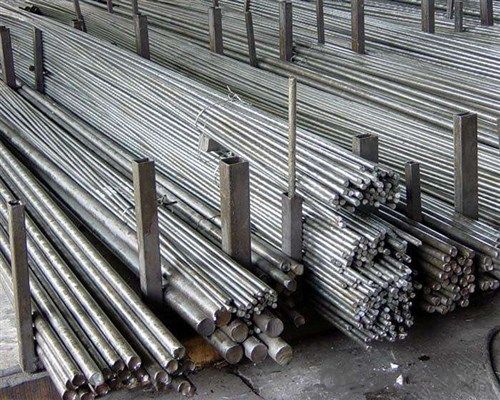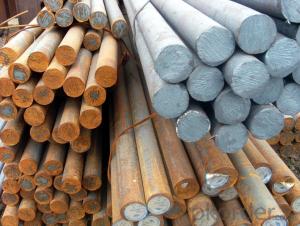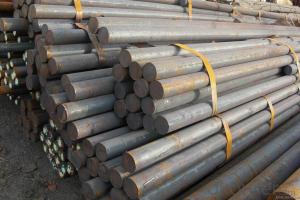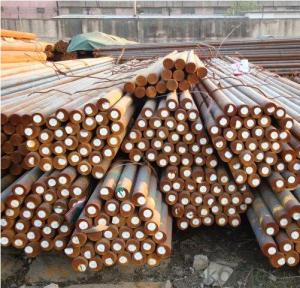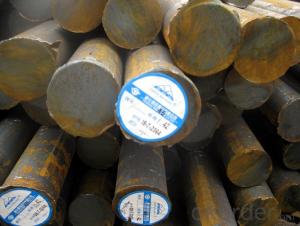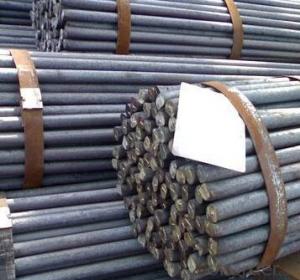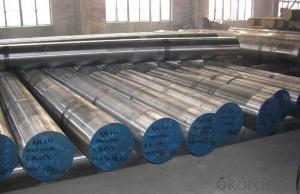1.2738 Mound Steel,China Steel,Steel Mould
- Loading Port:
- China main port
- Payment Terms:
- TT or LC
- Min Order Qty:
- 25 m.t.
- Supply Capability:
- 10000 m.t./month
OKorder Service Pledge
OKorder Financial Service
You Might Also Like
Specification
Product information:
Grade | C | Si | Mn | P | S | Cr | Mo | V |
P20 | 0.28~0.40 | 0.20~0.80 | 0.60~1.00 | ≤0.030 | ≤0.030 | 1.40~2.00 | 0.30~0.55 | --- |
1.2311 | 0.35~0.45 | 0.20~0.40 | 1.30~1.60 | ≤0.035 | ≤0.035 | 1.80~2.10 | 0.15~0.25 | --- |
3Cr2Mo | 0.28~0.40 | 0.20~0.80 | 0.60~1.00 | ≤0.030 | ≤0.030 | 1.40~2.00 | 0.30~0.55 | --- |
Applications of mould steel material
mould steel tool steel is ideally suited for the production of plastic moulds. Typical applications include die holders, zinc die casting dies, backers, bolsters and injection moulds. The versatility of mould steel tool steel with its high tensile characteristics enables uses for a variety of other applications such as shafts, rails and wear strips
Forging of mould steel material
Heat slowly, allowing sufficient time for the steel to become heated through. Begin forging at 1050°C. Do not forge below 930°C reheating if necessary. After forging, cool very slowly.
Annealing of mould steel material
Heat uniformly to 770-790°C. Soak well, cool slowly in the furnace.
Stress Relieving of mould steel material
When dies are heavily machined, we recommend stabilising just before finish machining in order to relieve machining strains. Heat to 460-500°C. Soak well and allow to cool in the air.
Hardening of mould steel material
Heat the steel uniformly to 820-840°C until heated through. Quench in oil.
Product show
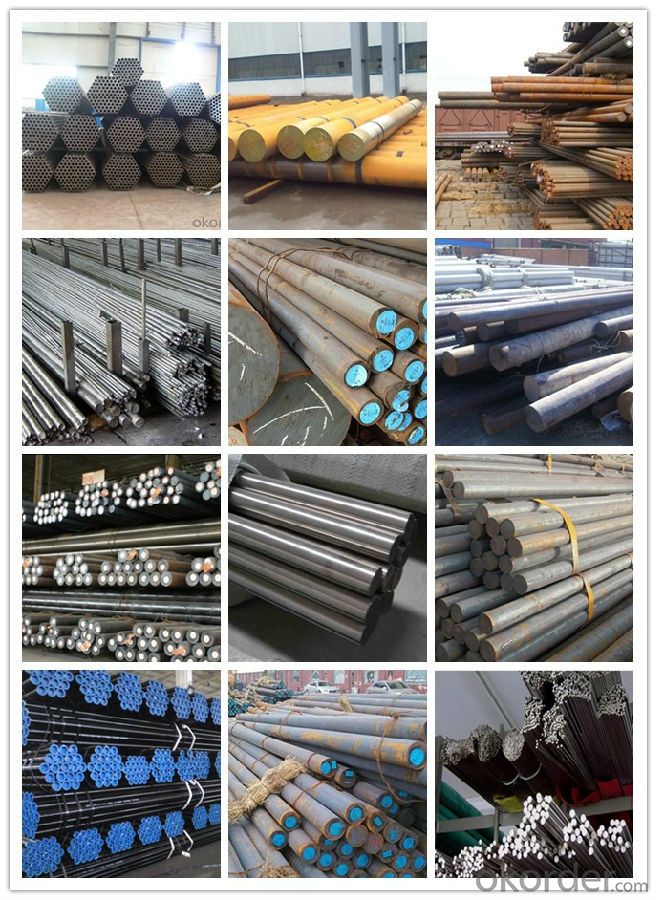
Workshop show
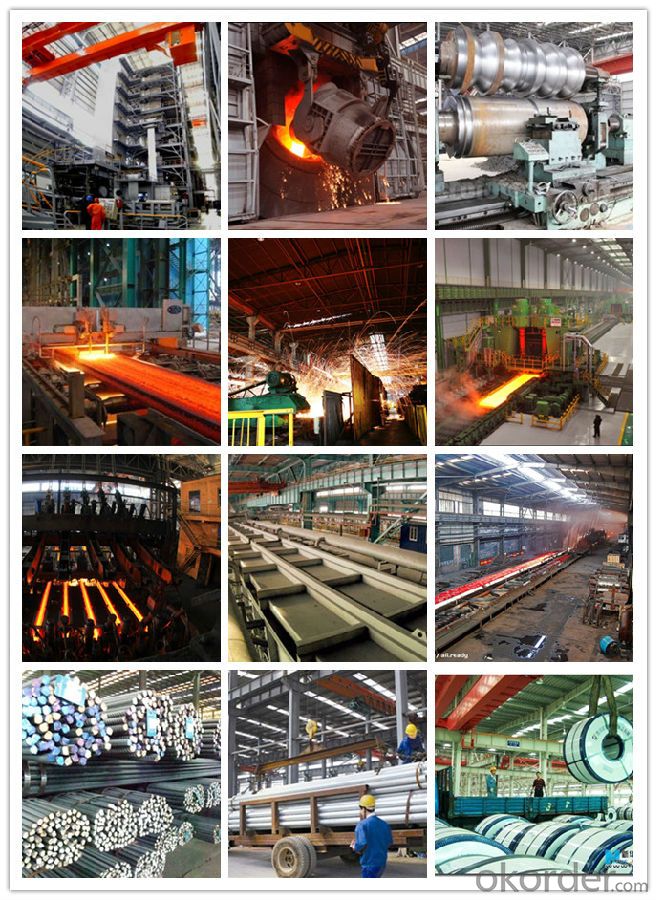
- Q: How can I determine the cooling water flow of square billet mold for special steel?
- The mould water quantity is calculated according to experience. The cooling water quantity of mould is calculated according to the periphery length of mould:W=2 (L+D) - QkW in mould -- cooling water quantity of mould;L - slab width, mm;D - slab thickness, mm;Qk - water flow per unit length, L/ (min = mm), for billet mold, 2.0~3.0L/ (min. Mm).
- Q: How does special steel contribute to the oil and gas machinery industry?
- The oil and gas machinery industry heavily relies on special steel due to its wide range of essential properties and characteristics. Its exceptional strength and durability allow it to withstand the extreme forces and pressures involved in oil and gas extraction, transportation, and refining processes. This ensures reliable and efficient machinery operation, minimizing downtime and maintenance costs. Special steel also possesses excellent corrosion resistance, which is crucial in an industry where equipment is constantly exposed to corrosive environments like seawater, acidic gases, and high-temperature fluids. Using corrosion-resistant special steel increases machinery lifespan, reduces equipment failure risk, and enhances overall safety. Moreover, special steel exhibits high temperature resistance, which is vital in this industry where equipment operates at extremely high temperatures, especially in drilling, refining, and petrochemical production processes. Special steel alloys maintain their structural integrity under these elevated temperatures, ensuring safe and efficient machinery functioning. Additionally, special steel offers exceptional wear and abrasion resistance properties, making it ideal for components exposed to constant friction such as valves, pumps, and drilling tools. This wear and abrasion resistance prolongs component lifespan, reduces maintenance needs, and enhances overall machinery efficiency. In summary, special steel significantly contributes to the oil and gas machinery industry by providing the necessary strength, durability, corrosion resistance, high temperature resistance, and wear resistance required for demanding operating conditions. By utilizing special steel alloys, manufacturers can create robust and reliable machinery capable of withstanding the challenges of the oil and gas industry, ensuring the smooth and safe extraction, transportation, and processing of oil and gas resources.
- Q: What are the main advantages of using special steel in the aerospace industry?
- The main advantages of using special steel in the aerospace industry are its high strength-to-weight ratio, excellent corrosion resistance, and superior heat resistance. Special steel allows aircraft to be lighter, yet still maintain the necessary structural integrity and safety standards. Its resistance to corrosion ensures the longevity of the aircraft, even in harsh environments. Additionally, special steel's ability to withstand high temperatures makes it suitable for use in jet engines and other crucial components, ensuring optimum performance and safety in aerospace applications.
- Q: What are the main corrosion resistance properties of special steel?
- The main corrosion resistance properties of special steel include high resistance to rust, oxidation, and chemical attack. It can withstand harsh environments, such as exposure to saltwater, acids, and alkalis, without significant degradation. Additionally, special steel often possesses a passive oxide layer on its surface, which acts as a protective barrier against corrosion.
- Q: Can special steel be used in extreme weather conditions?
- Yes, special steel can be used in extreme weather conditions. Special steel is known for its excellent strength, durability, and corrosion resistance, making it a suitable material for various applications, including those in extreme weather conditions. For example, stainless steel, which is a type of special steel, is widely used in environments with high moisture or salt content, such as coastal areas or marine structures. It can withstand the corrosive effects of saltwater and resist rusting, making it ideal for prolonged exposure to extreme weather conditions. Additionally, special steel alloys can also be specifically designed to withstand extreme temperatures, such as those found in arctic or desert environments. These alloys can maintain their mechanical properties and structural integrity even in extreme cold or hot temperatures. Overall, special steel is a versatile material that can be utilized in various industries and applications, including those in extreme weather conditions, due to its exceptional strength, durability, and resistance to corrosion.
- Q: How is special steel used in the production of automotive springs?
- Special steel is used in the production of automotive springs due to its unique properties that make it ideal for this application. Automotive springs, such as suspension springs and valve springs, need to be able to withstand heavy loads, repetitive stress, and high temperatures. Special steel, also known as alloy steel, is specifically designed to have enhanced mechanical properties compared to regular steel. It is typically made by adding additional alloying elements such as chromium, nickel, or molybdenum to improve its strength, hardness, and resistance to wear and fatigue. In the production of automotive springs, special steel is used to create springs that can handle the demanding conditions of the vehicle's suspension system. These springs must be able to absorb and distribute the weight of the vehicle, while also providing a smooth and comfortable ride. The high strength of special steel allows automotive springs to withstand heavy loads without deforming or breaking. This is crucial to ensure the stability and safety of the vehicle, especially during rough road conditions or when carrying heavy loads. Moreover, special steel's resistance to fatigue is essential in the production of automotive springs. These springs undergo millions of cycles of compression and expansion during the vehicle's lifetime. The fatigue resistance of special steel ensures that the springs can maintain their performance and reliability over an extended period. Additionally, special steel's resistance to wear and corrosion is beneficial in automotive applications. Springs are exposed to various environmental elements, such as moisture, dirt, and chemicals, which can lead to corrosion and degradation. Special steel's corrosion resistance helps to prolong the lifespan of automotive springs and maintain their functionality. In summary, the use of special steel in the production of automotive springs ensures that these critical components can withstand heavy loads, repetitive stress, and high temperatures. Its enhanced mechanical properties, including strength, fatigue resistance, and corrosion resistance, make it an ideal material choice for automotive springs, contributing to the overall performance and durability of vehicles.
- Q: How does special steel compare to stainless steel?
- Special steel and stainless steel are two distinct types of steel with different properties and applications. While stainless steel is known for its corrosion resistance, special steel is recognized for its exceptional strength and durability. Special steel is often used in high-stress environments where resistance to wear, impact, or extreme temperatures is crucial. On the other hand, stainless steel is preferred in applications where resistance to rust and staining is essential, such as in kitchen appliances or medical instruments. Therefore, the choice between special steel and stainless steel depends on the specific requirements and desired characteristics for a particular application.
- Q: What are the specific requirements for special steel used in the chemical reactor industry?
- The specific requirements for special steel used in the chemical reactor industry typically include high corrosion resistance, excellent heat resistance, and strong mechanical properties. It should also have the ability to withstand aggressive chemical environments, such as strong acids or alkalis. Additionally, the steel should have low levels of impurities to prevent contamination of the chemical reactions.
- Q: What are the challenges in heat treating special steel?
- Some of the challenges in heat treating special steel include achieving the desired hardness and strength while maintaining dimensional stability, avoiding distortion or warping, controlling grain growth and microstructure, and ensuring proper heat distribution and uniformity throughout the material. Additionally, special steel alloys may have unique properties that require specific heat treatment techniques or specialized equipment, adding complexity to the process.
- Q: What are the requirements for special steel used in aerospace defense applications?
- Due to the critical nature of aerospace defense applications, the demands for special steel are highly rigorous. The steel must meet several key requirements: 1. Exceptional strength is necessary to withstand extreme conditions and loads, ensuring the structural integrity of aircraft and defense equipment. 2. The steel must have excellent corrosion resistance to combat the harsh environments it encounters, such as moisture, saltwater, and chemicals. This prevents degradation and maintains performance over time. 3. Withstanding high temperatures without compromising mechanical properties is crucial for components operating in high-temperature environments, like jet engines and rocket nozzles. 4. Fatigue resistance is essential as aerospace defense applications involve repeated stress cycles. The steel should be able to resist fatigue failure, ensuring long service lives without failure. 5. Weight reduction is a critical factor to enhance fuel efficiency, payload capacity, and overall performance. The special steel must have a high strength-to-weight ratio, allowing for lighter structures without compromising strength. 6. To ensure reliability and longevity in demanding operational conditions, the steel used must have a high level of purity and cleanliness, minimizing the presence of impurities and defects. 7. Compatibility with other materials, such as aluminum alloys and composite materials commonly used in aerospace defense applications, is essential for reliable and efficient integration of different components and structures. Meeting these requirements often involves utilizing advanced manufacturing techniques such as vacuum melting, precise alloying, and heat treatment processes. Additionally, strict quality control measures, including non-destructive testing and material certification, are crucial to guarantee the performance and reliability of special steel in aerospace defense applications.
Send your message to us
1.2738 Mound Steel,China Steel,Steel Mould
- Loading Port:
- China main port
- Payment Terms:
- TT or LC
- Min Order Qty:
- 25 m.t.
- Supply Capability:
- 10000 m.t./month
OKorder Service Pledge
OKorder Financial Service
Similar products
Hot products
Hot Searches
Related keywords
